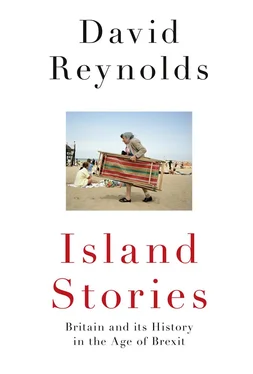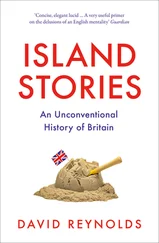Magnifying this sense of lost greatness is the visibility of the past in contemporary Britain. The era of ‘decline’ is not only an age of affluence but also the heyday of Heritage. Yet what the ‘H’ word actually means is elusive. ‘We could no more define the national heritage than we could define, say, beauty or art,’ stated the first annual report of the National Heritage Memorial Fund in 1980–1. In its view the term obviously included ‘the natural riches of Britain’, threatened by ‘thoughtless development’, but ‘heritage’ was also ‘a representation of the development of aesthetic expression and a testimony to the role played by the nation in world history’. [80] Конец ознакомительного фрагмента. Текст предоставлен ООО «ЛитРес». Прочитайте эту книгу целиком, купив полную легальную версию на ЛитРес. Безопасно оплатить книгу можно банковской картой Visa, MasterCard, Maestro, со счета мобильного телефона, с платежного терминала, в салоне МТС или Связной, через PayPal, WebMoney, Яндекс.Деньги, QIWI Кошелек, бонусными картами или другим удобным Вам способом.
The prodigious growth of the ‘heritage industry’ has spawned many forward-looking projects of urban and rural regeneration. But it can also foster nostalgia funded by affluence. At one end of the spectrum is the National Trust – despite its name a private charity whose membership has mushroomed from 1 million in 1981 to over 5 million in 2017. Now one of the largest landowners in Britain, the Trust describes its mission as preserving ‘special places’ not only ‘for everyone’ but also ‘for ever’. It has been credited with largely ensuring the survival of the English country house, and with that an alluring evocation of past gentility. At the other end of the spectrum, local councils and museums have given new life to a multitude of derelict industrial sites. [81] Конец ознакомительного фрагмента. Текст предоставлен ООО «ЛитРес». Прочитайте эту книгу целиком, купив полную легальную версию на ЛитРес. Безопасно оплатить книгу можно банковской картой Visa, MasterCard, Maestro, со счета мобильного телефона, с платежного терминала, в салоне МТС или Связной, через PayPal, WebMoney, Яндекс.Деньги, QIWI Кошелек, бонусными картами или другим удобным Вам способом.
Some of these – Ironbridge, for instance – can be infused with a gritty grandeur to match, in a different way, country houses like Stourhead or Cliveden.
The vogue since the 1980s for ‘heritage films’ has also enhanced the ‘historical imaginary’ of Britain. Many influential blockbusters feature famous monarchs, such as Henry VIII, Elizabeth I and George III, and country-house dramas have always been popular, from Brideshead Revisited to Downton Abbey . Often memorably acted and beautifully filmed, these films and TV programmes can insidiously suggest that the nation’s past is more impressive and exciting than its present. That can also be the effect of the most dynamic area of recent history television, so-called ‘Reality History’. Moving away from an academic, informational approach, TV channels adopted a more emotive, participatory format – encouraging the viewer to identify with historical figures and their experience by adopting their lifestyle (the House genre), wearing their clothes, or enduring their experiences ( Trench , Ship , and so on). [82] Конец ознакомительного фрагмента. Текст предоставлен ООО «ЛитРес». Прочитайте эту книгу целиком, купив полную легальную версию на ЛитРес. Безопасно оплатить книгу можно банковской картой Visa, MasterCard, Maestro, со счета мобильного телефона, с платежного терминала, в салоне МТС или Связной, через PayPal, WebMoney, Яндекс.Деньги, QIWI Кошелек, бонусными картами или другим удобным Вам способом.
Particularly potent have been movies about Britain’s Second World War produced by post-war British studios. The total number was remarkable: about one hundred in the two decades from 1946 to 1965. Some 30 million people went to the cinema every week in the late 1940s, when Britain’s population totalled 51 million. Although attendance fell below 15 million in 1959, this figure still virtually matched the circulation of all national daily newspapers. War films – though despised by many critics – proved consistent box-office successes. The Dam Busters was the top-grossing British film in 1955; likewise Reach for the Sky in 1956 (about the wartime aviator Douglas Bader). Sink the Bismarck was another big success in 1960. Unlike movies of the 1920s and 1930s about the Great War, there was very little questioning of the conflict’s rightness; nor were soldiers on both sides depicted as essentially ordinary men led as victims to the slaughter. The post-1945 films celebrated men and masculinity; their heroes – stars such as Jack Hawkins and Richard Todd – were generally tough but reserved, stereotypically English, and their German and Japanese foes usually classic ‘baddies’. Apart from a few Australians, the contributions of the empire to victory rarely figured, nor those of allies such as the Americans – let alone the Russians. Complementing the message of the popular boys’ weekly, The Eagle , these movies projected the war as ‘a great game’ and ‘a good cause’. Of course, most audiences probably enjoyed them simply as action-packed entertainment – escapes from Nazi prisoner-of-war camps being particularly popular. But, at a subliminal level, the films served to reinforce the heroic narrative of Britain Alone. [83] Конец ознакомительного фрагмента. Текст предоставлен ООО «ЛитРес». Прочитайте эту книгу целиком, купив полную легальную версию на ЛитРес. Безопасно оплатить книгу можно банковской картой Visa, MasterCard, Maestro, со счета мобильного телефона, с платежного терминала, в салоне МТС или Связной, через PayPal, WebMoney, Яндекс.Деньги, QIWI Кошелек, бонусными картами или другим удобным Вам способом.
These movies were seen by much larger audiences from the 1970s through endless repeats on television. And, more recently, the heroic narrative has been sharpened down to the person of Churchill himself, through what is called a process of ‘re-mediation’ – as one medium refashions the product of another: book, journalism, film, with multiple feedback loops – and in the process amplifies the Churchillian impact. Churchill started the process with six volumes of war memoirs published between 1948 and 1954. He intended to shape the verdict of history at an early stage by, as he liked to put it, being one of the historians. The most vivid parts of those books were purveyed to a much larger audience through serialisation across the world in major newspapers, including the Daily Telegraph in Britain and the New York Times and Life magazine in the USA. Film-makers also picked up the memoirs, for instance, the Winston Churchill: The Valiant Year series shown in America and Britain in 1960–1, and Churchill’s immortality was then assured by a state funeral in 1965, broadcast on TV across the world. Meanwhile, historian Martin Gilbert was gradually constructing Churchill’s literary mausoleum in what became an eight-volume ‘official biography’, on which he worked for twenty years before its completion in 1986. These volumes and the accompanying tomes of supporting documents in turn provided vast amounts of additional information for new movies and TV films. In The Wilderness Years – an eight-part television series of 1982 – Churchill in the 1930s was brought to life for a new generation by the actor Robert Hardy. In the twenty-first century, British-American co-productions hiked up the budgets and also the special effects. In quick succession came Albert Finney in The Gathering Storm (2002), Brendan Gleeson ( Into the Storm , 2009) and Gary Oldman’s Oscar-winning performance in Darkest Hour in 2017 – the same year as the movie Dunkirk , another box-office triumph about Britain in 1940. And so the process of Churchillian re-mediation has continued for some seventy years, with books, films and journalism feeding on each other. [84] Конец ознакомительного фрагмента. Текст предоставлен ООО «ЛитРес». Прочитайте эту книгу целиком, купив полную легальную версию на ЛитРес. Безопасно оплатить книгу можно банковской картой Visa, MasterCard, Maestro, со счета мобильного телефона, с платежного терминала, в салоне МТС или Связной, через PayPal, WebMoney, Яндекс.Деньги, QIWI Кошелек, бонусными картами или другим удобным Вам способом.
Читать дальше












